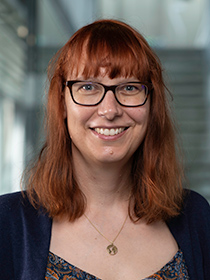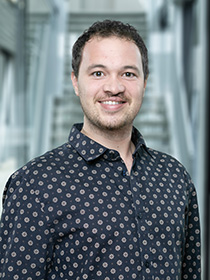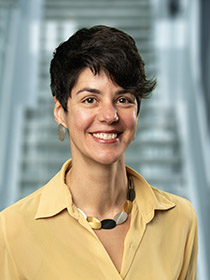Migration and asylum are highly complex phenomena that impact many different aspects of social life. Addressing migration and asylum therefore calls for a plurality of analytical perspectives which, taken together, can provide a more comprehensive understanding. Interdisciplinarity is a crucial tool to unravel some of this inherent complexity and can serve to illuminate those aspects of migration and asylum that remain hidden, unknown, or distorted when only using a single lens of analysis. By bringing together empirical insights, theoretical advances, and methodological pluralism across disciplinary boundaries—and extending beyond academia—we can more effectively identify the current shortcomings of migration policy and governance. The DEMIG Talk series aims to highlight the diversity of disciplines that relate to the field of migration, emphasizing the importance of combining different angles to better grasp human mobility whilst also calling for increasing cross-pollination and knowledge exchange.
Join us on 12 February 2026 (16:00–17:00 CET) for the next session of the DEMIG Talk Series with Olga Odgers Ortiz. Her talk, Spirituality in Spaces of Waiting, explores the role of spirituality in the lives of migrants, refugees, and asylum seekers facing prolonged uncertainty along the US–Mexico border. Drawing on qualitative research conducted in collaboration with Craig Smith, Olga Olivas, and Javier Jiménez across Catholic, Evangelical, Muslim, and secular shelters in Tijuana, she examines how sacralization practices help individuals navigate hardship. We invite you to an insightful discussion on migration, uncertainty, and the role of spirituality in resilience.
Access the DEMIG Talk with Olga Odgers Ortiz
Please Note: By attending this event, you acknowledge the following privacy policies: https://zoom.us/de-de/privacy.html and https://www.donau-uni.ac.at/en/university/privacy-policy#event.
Click here to participate via Zoom.Upcoming talks
Spirituality in Spaces of Waiting: Uncertainty and Sacralization Practices in Migrant Shelters at the US-Mexico Border
Speaker: Olga Odgers Ortiz, El Colegio de la Frontera Norte, Mexico
12 February 2026, 16:00-17:00 CET | online (Zoom meeting link)
What role does spirituality play in the lives of migrants facing long periods of uncertainty? In this talk, sociologist Olga Odgers Ortiz explores how migrants, refugees, and asylum seekers cope with extended waiting times in shelters along the US-Mexico border. Based on qualitative research jointly conducted with Craig Smith, Olga Olivas and Javier Jiménez in Catholic, Evangelical, Muslim, and secular shelters in Tijuana, she examines how sacralization practices—such as invoking protection, seeking comfort, healing, and re-semanticizing suffering—help individuals navigate hardship and maintain well-being. Join us for an insightful discussion on migration, uncertainty, and the role of spirituality in resilience.
Bio: Olga Odgers-Ortiz is a Mexican sociologist and senior researcher at El Colegio de la Frontera Norte (COLEF) in Tijuana, where she has worked since 1999. Her research focuses on Mexico–U.S. migration, with emphasis on identity transformation, religion, and health among migrants.
She holds a PhD in Sociology from the École des Hautes Études en Sciences Sociales (EHESS) in Paris, where her dissertation on Mexican migrants was later published as Identités frontalières.
Odgers-Ortiz is a member of the Mexican Academy of Sciences and the National System of Researchers (SNI Level III). She has led multiple interdisciplinary projects on religious change, urban integration, and migrant health, and currently serves as editor-in-chief of the journal Migraciones Internacionales.
Past talks
Approaching immobility from an ethnographic perspective
Diana Mata-Codesal, Department of Social Anthropology of the University of Barcelona
22 January 2026, 14:00-15:00 CET | online
In a world increasingly perceived as mobile, experiences of immobility are widely shared by diverse groups. Yet immobility is not only a state to avoid; it can be valued as a desirable horizon, emerging not as a limitation but as a conscious choice. While traditional sedentary norms considered immobility a normative ideal, the increasingly prevalent ideology of mobility generates tensions between valued forms of immobility, such as being settled or rooted, and undesirable forms, such as being stuck or immobilized. Anthropology’s ethnographic method allows us to approach immobility from the perspective of those who experience it. In this talk, I will show the potentialities of this approach to detect changing and contested meanings and imaginaries of immobility.
Bio: Diana Mata-Codesal is lecturer at the Department of Social Anthropology of the University of Barcelona (Spain). She publishes mostly on migration and human mobility with a focus on Latin American migrants. She was the co-convenor of the Anthropology and Mobility Research Network (AnthroMob) of EASA 2022-2024 and previously the co-coordinator of the Migrant Organizations research cluster of IMISCOE (European Network for Migration Studies) 2015-2018.
Complexity and uneveness in migrants’ regularization pathways in Latin America
Gisela P. Zapata, Federal University of Minas Gerais
Thursday, 13 November 2025, 15:00-16:00 CET | online
Drawing on qualitative data from 143 interviews with Venezuelan migrants across eight Latin American countries – Argentina, Brazil, Chile, Colombia, Costa Rica, Ecuador, Mexico and Uruguay – this paper presents a comparative analysis of migrants' documentation itineraries vis-à-vis regularisation pathways in these destination countries. While the existing literature has documented shifts in migration and refugee policy over the past decade, less attention has been paid to how such transformations have impacted on migrants’ regularisation pathways. We argue that regularisation is not a singular legal outcome, but a dynamic, often non-linear process shaped by the proliferation of legal-administrative instruments and widespread documentation fragility.
The findings point to a regional trend towards the complexification of documentation itineraries, resulting in the emergence or expansion of irregularity and the development of diverse regularisation pathways. This complexification often involves the succession of temporary and permanent statuses, transitions between administrative and asylum regularisation pathways, and periods of regularity interwoven with irregularity. This complexity contributes to greater legal stratification and increasingly hazardous and prolonged processes for securing permanent legal status. This paper sheds light on the intersection between legal frameworks and individual trajectories, offering new perspectives on (ir)regularity, rights access, and the governance of migration in Latin America.
Bio: Gisela P. Zapata is an Assistant Professor in the Department of Demography and researcher at the Centre for Regional Development and Planning (CEDEPLAR) at the Federal University of Minas Gerais (UFMG), Brazil. She holds a PhD in Human Geography from Newcastle University (UK). She is a fellow of the Brazilian Council for Scientific and Technological Development (CNPq) and founding member of the Research Group ‘Comparative Analysis on International Migration and Displacement in the Americas’ [CAMINAR]. Her research focuses on international migration and displacement, migration policies, remittances, and the migration-development and humanitarian-development nexus in Latin America.
Migrants’ Political and Social Participation in Rural Italy: Empirical Evidence
Giorgia Zogu, University of Vienna
Thursday, 23 October 2025, 14:00-15:00 CEST | online
This presentation explores opportunities for political and societal participation of migrants by examining rural case studies from selected regions in Italy. Despite common assumptions about rural political disengagement or populist leanings, rural areas are diverse political and social spaces shaped by socio-economic, cultural, and historical disparities. Through a comparative lens, the webinar analyzes structural conditions, local governance, party system influences, and local and regional actors that support or hinder political and civic engagement, as well as societal participation in rural contexts.
Giorgia Zogu explores how local factors shape immigrant political participation in rural Italy. Comparing nine diverse municipalities, she finds that individual traits (such as language and employment) and community dynamics (including local institutions and social networks) influence engagement.
By focusing on the Italian case, the webinar aims to identify both common patterns and context-specific dynamics that contribute to understanding political behavior and societal engagement beyond urban-centric narratives.
Bio: Giorgia Zogu is a political scientist specializing in migration, minority rights, and political participation. She is currently a doctoral candidate at the University of Vienna and was previously a Pre-Doctoral Fellow at Eurac Research in Bolzano, Italy (Institute for Minority Rights & Center for Migration and Societal Change). Her doctoral research examines the political participation of individuals with immigrant backgrounds in rural areas of Italy, with a particular focus on how rurality influences access to and forms of engagement. Furthermore, she conducted research on the recruitment, representation and political experiences of candidates with immigrant backgrounds in local-level electoral processes. Beyond that, Giorgia Zogu actively engages in science communication through editorial and creative roles, such as in the DoctorIt! (University of Vienna) and AutIn (Eurac Research) podcasts.
Between knowledge and assumptions: The migrant in the eyes of the policymaker
Katharina Natter, Leiden University
Thursday, 18 September 2025, 14:00-15:00 CEST | hybrid format: University for Continuing Education Krems, Room SE W 1.03 + online
What role does expert knowledge play in migration policymaking? While previous research focused on differentiating instrumental from symbolic knowledge use, this paper advances scholarly insights into equally important, yet under-theorized knowledge practices: knowledge non-use and misuse. Based on a comparative analysis of justification narratives surrounding Austrian, Italian and Dutch migration reforms since the 2000s, this paper delves into knowledge use dynamics across three policy areas: counter-smuggling, asylum reception, and migrant worker attraction. The analysis shows how “the migrant” is portrayed in fundamentally different ways across policy areas, with clear consequences on whether knowledge is used, cherry-picked, disregarded, or even distorted.
Bio: Katharina Natter is Senior Assistant Professor at the Institute of Political Science at Leiden University. She researches migration politics from a comparative perspective, with a particular focus on the role of political regimes in immigration policymaking. Katharina’s work seeks to advance migration policy theory and to connect it with broader social science research on modern statehood and political change. Hereby, she also hopes to contribute to the wider academic effort of bridging theorizations of socio-political processes in the ‘Global South’ and the ‘Global North’.
Katharina has conducted extensive field research on the politics of migration in Morocco and Tunisia, but has also worked on European migration policies and on the link between migration and development. She has published in International Migration Review, Population and Development Review, Political Research Exchange, Comparative Migration Studies and the Journal of North African Studies. Her recent book, The Politics of Immigration Beyond Liberal States: Morocco and Tunisia in Comparative Perspective, has just been published by Cambridge University Press.
Katharina received her PhD in Political Sociology from the University of Amsterdam in 2019. Prior to that, she worked at the International Migration Institute (University of Oxford) and studied Comparative Politics at SciencesPo Paris. Since 2011, she is also involved in Asylos, an NGO providing Country of Origin research for lawyers representing asylum seekers.
Newsletter of the Department für Migration and Globalization
Our subscribers receive the most important news from the department up to six times a year.
Sign up for the newsletter hereTags


